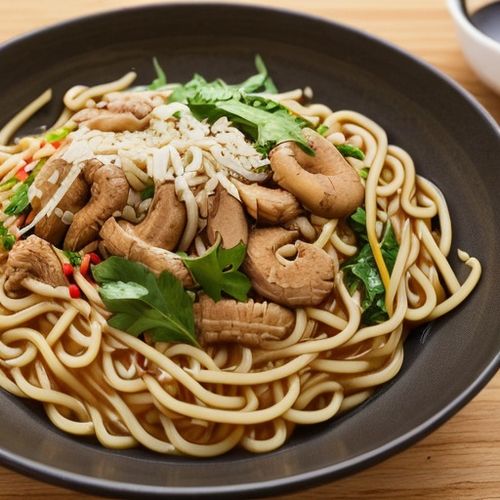South Korea's food industry has reached a significant milestone as its exports have surpassed the $1 billion mark for the first time, reflecting the growing global appetite for Korean cuisine. This achievement is a testament to the country's culinary prowess and its ability to adapt to international tastes. The surge in popularity of Korean food is not only a cultural phenomenon but also an economic one, with泡菜 (kimchi) and instant food products leading the charge.
Korean Cuisine's Global Appeal
Korean food, once a niche market, has now become a mainstream favorite across the globe. The unique flavors and health benefits of Korean cuisine have captured the interest of consumers worldwide. The global pandemic has also played a role in this trend, as people sought comfort in familiar flavors and convenience in their meals. This has led to a surge in demand for Korean food products, particularly those that can be easily prepared at home.
The Rise of Kimchi
Kimchi, the traditional Korean side dish made from fermented vegetables, has become a symbol of Korean cuisine. Its tangy, spicy flavor and health benefits have made it a popular choice for health-conscious consumers. The global health trend towards fermented foods has also contributed to the rise of kimchi. As a result, kimchi has become a staple in many households, not just in Korea but around the world. The versatility of kimchi as an ingredient in various dishes has further increased its appeal, making it a must-have in many kitchens.
Instant Food Products: A Hit with Busy Consumers
The demand for convenience has never been higher, and Korean instant food products have stepped up to meet this need. From instant ramen to pre-packaged bibimbap and other traditional dishes, these products offer a quick and easy way to enjoy authentic Korean flavors. The convenience of these products, coupled with their taste and nutritional value, has made them a hit with busy consumers who want to enjoy a home-cooked meal without the time and effort required for traditional cooking methods.
South Korea's Food Industry: Adapting to Global Tastes
South Korea's food industry has been quick to adapt to the changing tastes of global consumers. By focusing on innovation and quality, Korean food companies have been able to create products that appeal to a wide range of palates. This has not only helped to increase exports but also to establish South Korea as a leader in the global food industry. The country's food industry has also been proactive in marketing its products, using social media and other platforms to reach a global audience and promote the unique flavors of Korean cuisine.
The Impact of K-Pop and K-Drama
The global popularity of K-pop and K-drama has also played a significant role in the rise of Korean food exports. Fans of these entertainment forms often become interested in the culture and cuisine of South Korea, leading to increased demand for Korean food products. The portrayal of Korean food in these dramas and music videos has helped to create a desire for authentic Korean flavors, further driving the growth of the industry.
Challenges and Opportunities
While the growth in Korean food exports is a positive sign, there are also challenges that the industry must face. Competition from other food-exporting countries, changing consumer preferences, and the impact of global economic conditions are all factors that can affect the industry's growth. However, the opportunities for expansion are vast, with many markets still untapped and a growing global interest in Korean cuisine.
Future Outlook
Looking to the future, the prospects for South Korea's food industry are promising. As the global appetite for Korean food continues to grow, the industry is poised to capitalize on this trend. Investments in research and development, as well as marketing and distribution, will be key to maintaining the momentum of this growth. By continuing to innovate and adapt to the needs of global consumers, South Korea's food industry is set to remain a significant player in the global food market.
The success of South Korea's food exports is a story of cultural exchange and economic growth. The popularity of Korean food around the world is a testament to the universal appeal of its flavors and the adaptability of its cuisine. As the industry continues to evolve and expand, it will be interesting to see how it shapes the global food landscape and contributes to the diverse tapes

By Sophia Lewis/Apr 6, 2025

By Thomas Roberts/Apr 5, 2025

By Emma Thompson/Apr 5, 2025

By Sarah Davis/Apr 5, 2025

By John Smith/Apr 5, 2025

By Laura Wilson/Apr 5, 2025

By Christopher Harris/Apr 5, 2025

By Emma Thompson/Apr 5, 2025

By David Anderson/Apr 5, 2025

By James Moore/Apr 5, 2025

By James Moore/Apr 5, 2025

By Natalie Campbell/Apr 5, 2025

By David Anderson/Apr 5, 2025

By Grace Cox/Apr 5, 2025

By Thomas Roberts/Apr 5, 2025

By Christopher Harris/Apr 5, 2025

By Michael Brown/Apr 5, 2025